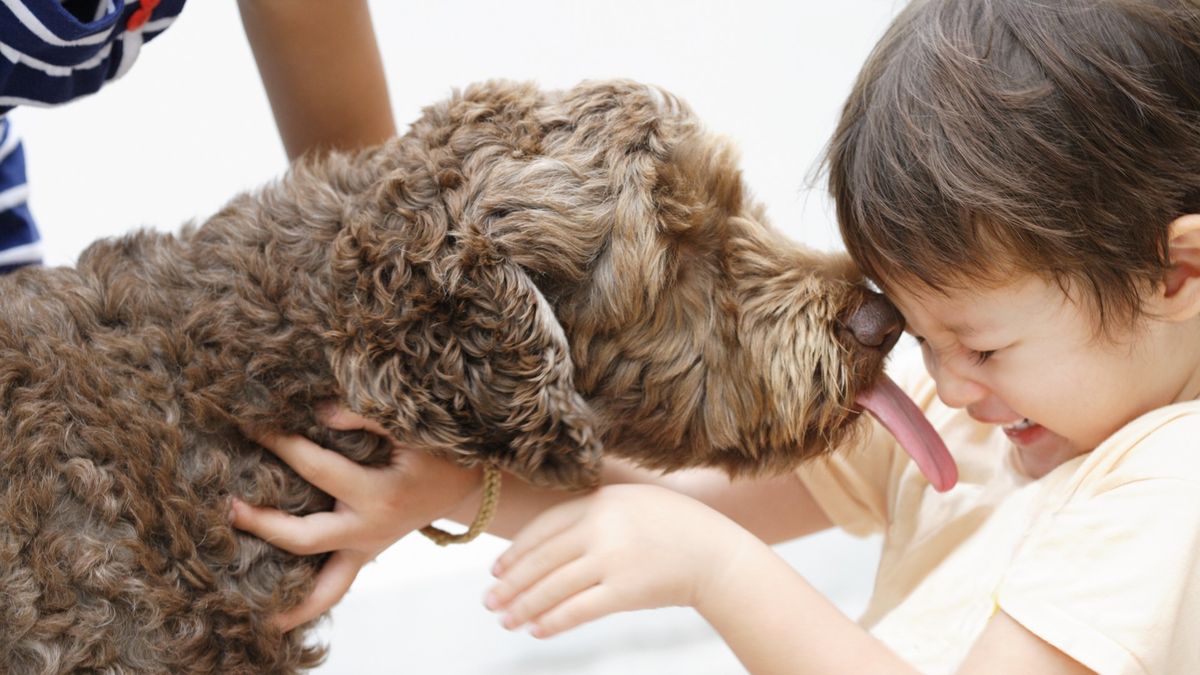Do dogs love us? | Live Science

The feats that canine undertake for their proprietors are the things of legend. Information stories are loaded with tales of pups leading rescue employees to wounded house owners and heroic canines safeguarding little ones from animal assaults, but a question normally occurs in these impressive situations: do canines aid simply because they appreciate us, or simply because they see us as a meal ticket?
If the authorities and research are to be believed, puppies could in fact adore persons a lot more than food.
“I am wholly persuaded that our dogs adore us. There’s no problem in my thoughts,” Clive Wynne (opens in new tab), a professor of psychology at Arizona State University and the director of the university’s Canine Science Collaboratory, advised Are living Science.
Of course, it’s one particular issue to have an viewpoint about a favorite pet. Proving appreciate — a feat that still puppies human beings — is one more matter entirely. But scientific tests of various sophistication, all performed by inquiring canine house owners, show up to back again him up.
Soon after the dying of his beloved canine, Newton, Gregory Berns (opens in new tab), a neurologist at Emory University in Ga and creator of the publications “How Dogs Appreciate Us: A Neuroscientist and His Adopted Puppy Decode the Canine Mind (opens in new tab)” (New Harvest, 2013) and “What It really is Like to Be a Pet dog: And Other Adventures in Animal Neuroscience (opens in new tab),” (Fundamental Publications, 2017), reported he turned curious about what canines felt and believed. So, he skilled his canine, Callie, and other dogs to tolerate the noise inside of the imaging chamber of an MRI and then analyzed their brain exercise. He then subjected the canines to a selection of scents from familiar and unfamiliar puppies and individuals. Whilst the scent-region of the brain lit up for all 12 canines no matter of who the person or pet was, only the acquainted scents lit up the caudate nucleus, a area tied to better-degree mental processes this sort of as emotion, determination and reward and romantic feeling, according to a 2015 study printed in the journal Behavioural Processes (opens in new tab).
In an added research of 15 canines, printed in 2016 in the journal Social Cognitive and Affective Neuroscience (opens in new tab), Berns observed that 86{95221ed7c1b18b55d17ae0bef2e0eaa704ccc2431c5b12f9d786c88d1acb538d} confirmed a comparable or better level of caudate activation in response to praise than they did from food items.
Connected: How extensive do puppies dwell?
Although it might not have applied these types of advanced equipment, Wynne and colleagues also observed that pet dogs could want their homeowners over food when they are left at house without the need of food stuff or human companionship for far more than four hours, according to a 2022 study revealed in Peer J Lifestyle and Setting (opens in new tab). Researchers established up the experiment merely ample in most scenarios it was in a suburban house with an attached garage. Just after the dog’s owner arrived dwelling, an assistant positioned a bowl of food stuff in a tiny circle in the garage 6.5 toes (2 meters) and off at an angle from the door though the proprietor stood in a circle that was 6.5 ft absent from the doorway and off at an opposite angle.
“Eight out of 10 situations, the canines selected their proprietor,” Wynne claimed.
Takefumi Kikusui (opens in new tab), a researcher in the Faculty of Veterinary Medicine at Azabu University in Japan and colleagues observed that pet dogs will lose tears when reunited with an proprietor after a extensive absence, but will not display the exact depth of response to the return of one more human the animal acknowledges, he documented in a 2022 examine revealed in the journal Latest Biology (opens in new tab).
Wynne took the analysis one stage even more by seeing how significantly man’s very best friend could be keen to go to present their enjoy. Inspired by tales of dogs digging up their proprietors right after bombing raids in London throughout Globe War II, Wynne had the entrepreneurs of 60 pet dogs climb into packing containers and faux they have been in distress to see if their pets would rescue them. Around 1 out of 3 did so, according to a 2020 analyze released in the journal PLOS A single (opens in new tab).
“That may sound superficially disappointing. What about the other two [out of three] puppies? Really don’t they treatment?” Wynne asked. They may, he mentioned, but they couldn’t figure out how to get into the boxes even when they knew their favored food items experienced been put there.
Prior to people today go patting by themselves on the back again, on the other hand, Wynne was brief to stage out that the really like canine really feel isn’t unique to human beings. “Canine are born with a impressive capacity to variety powerful psychological connections with associates of any species that they satisfy through the first three months of life,” he claimed. So, if a pet is born on a farm, it could have the similar depth of emotion for a sheep, cow or even cat as it might for the farmer.
MRIs and controlled experiments are not the only way to decide how a dog feels about its owner, even though, Wynne explained.
“I tell people today, appear at the everyday occasions” like when you occur house at the conclude of the day. “If you have a dog, your puppy will be there at the doorway and your pet dog will be wagging his tail. You happen to be authorized to observe that actions and believe that what your puppy is telling you. That is your pet expressing potent emotions at reuniting with you.”









